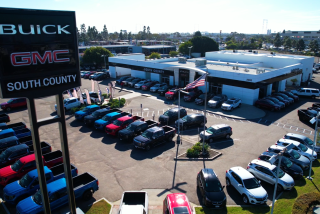Passenger Cars Are Outsold by Light Trucks for First Time
- Share via
DETROIT — Light trucks--pickups, sport-utility vehicles and minivans--outsold passenger cars for the first time in 2001, thanks in part to unprecedented deals in the months after the September terrorist attacks, auto makers said Thursday.
U.S. vehicle sales defied expectations of a year ago and soared to their second-highest levels ever in 2001, but some analysts say the incentive-driven sales surge in the fourth quarter may have come at the expense of sales in 2002, which are expected to drop significantly.
Sales of passenger cars and trucks reached 17.2 million, just 1.3% below 2000’s record of 17.4 million. The market was spurred by interest-free loans introduced to boost sales that had slowed to a crawl after the attacks drove shoppers away from showrooms.
General Motors Corp., which initiated the no-interest and super-low-interest financing in September that ran until Wednesday, stemmed a decade-long slide in market share, ending the year with 28.33% of the U.S. market for all of 2001, up from 28.28% for 2000.
Ford Motor Co.’s market share fell from 24.1% in 2000 to 23.1%, while DaimlerChrysler’s share sank from 15.7% in 2000 to 14.4%.
For the first time, light trucks accounted for more than half of the U.S. market, at about 51%. To capitalize on the growing truck market, auto makers continue to pour resources into developing new trucks, especially SUVs, such as the all-new Lincoln Navigator unveiled Thursday at the Los Angeles Auto Show, and new models from Ford, Volvo, Lexus, Land Rover and Hummer at the North American International Auto Show in Detroit next week.
“SUVs are the fastest-growing segment, as they have been every year since 1991,” said George Pipas, Ford’s director of sales analysis. “I expect SUVs will outperform all other segments in 2002.”
There were 58 different models of SUVs on the American market last year, but the number is expected to balloon to 85 in 2004, according to data released this week by industry consultant J.D. Power & Associates.
Ford continued to have the best-selling SUV, the Explorer, as well as the best-selling pickup truck in the F-series, which has been the top-selling vehicle in the U.S. for 20 years.
Nonetheless, GM claimed the title of truck champion, saying it set a record of 2.6 million trucks sold, more than any manufacturer, ever. “We bested any manufacturer by 200,000. We set a benchmark in SUVs, being the first to sell 1 million-plus in a calendar year,” said Paul Ballew, GM’s executive director of market industry analysis.
GM said Thursday that it is introducing a new incentive program: $2,002 cash back on the purchase or lease of any GM car or truck, except Saturns, through February.
“We found that a number of consumers wanted cash and not a low rate of financing,” Bill Lovejoy, group vice president of GM North America Vehicle Sales, Service & Marketing, said in a conference call with reporters. “This was a lot easier to understand, and for customers who wanted to do more on leasing, this gives them an opportunity to buy down leasing rates.”
GM was looking into a new, simplified incentive plan in August when internal research showed that 60% of customers who went to showrooms didn’t know the incentives available on the vehicles they were interested in, and dealers complained the system of rebates and low-interest financing based on geographical regions was too complicated, Lovejoy said.
After Sept. 11, GM settled on the interest-free or low-interest loans as an incentive that was easy to communicate and one that was quickly copied by Ford and Chrysler Group. Wall Street analysts say the program cost auto makers $1,500 to $3,000 per vehicle.
GM wanted to maintain sales momentum going into 2002, but analysts say the incentive programs pulled forward an estimated 500,000 sales from 2002 into the last quarter of 2001, and the market is likely to shrink to 15million to 15.5million vehicles.
“GM’s announcement that it is replacing its massively popular [no-interest] financing program with cash rebates of $2,002 reflects several industry trends, including the rising cost of low-rate loans as auto-company borrowing costs go up with credit downgrades, and the desire to avoid a collapse in industry volumes,” John Casesa, Merrill Lynch’s senior auto analyst in New York, wrote in a research report. “Ford followed GM’s lead in the 2001 incentive battle and will likely do so in 2002 with a program comparable to GM’s new customer cash rebate program,” Casesa said.
Ford Division President James O’Connor said he has a team dealing with the issue but declined to say what Ford will do after its own no-interest financing program runs out this month. “We’re going to look at days’ supply, look at production schedules, regional issues,” O’Connor said in a conference call with analysts and reporters. “You don’t want to go crazy.”
Luxury makers also showed strong growth over the year. Acura was up 19.5%, BMW up 12.5% and Lexus up 8.7%. Still, Lexus widened its lead as the No. 1 luxury brand in America in 2001, finishing comfortably ahead of second-place BMW, which in turn beat out Mercedes-Benz, the No. 2 luxury marque in 2000.
Among the other brands posting best-ever years in the U.S. market: Toyota, Lexus, BMW, Mercedes-Benz, Honda, Acura, Subaru, Ford-owned Volvo, Mitsubishi and Porsche. Honda also regained the title of best-selling passenger car in America with the Accord, ousting the Toyota Camry, which had occupied the position the four previous years.






